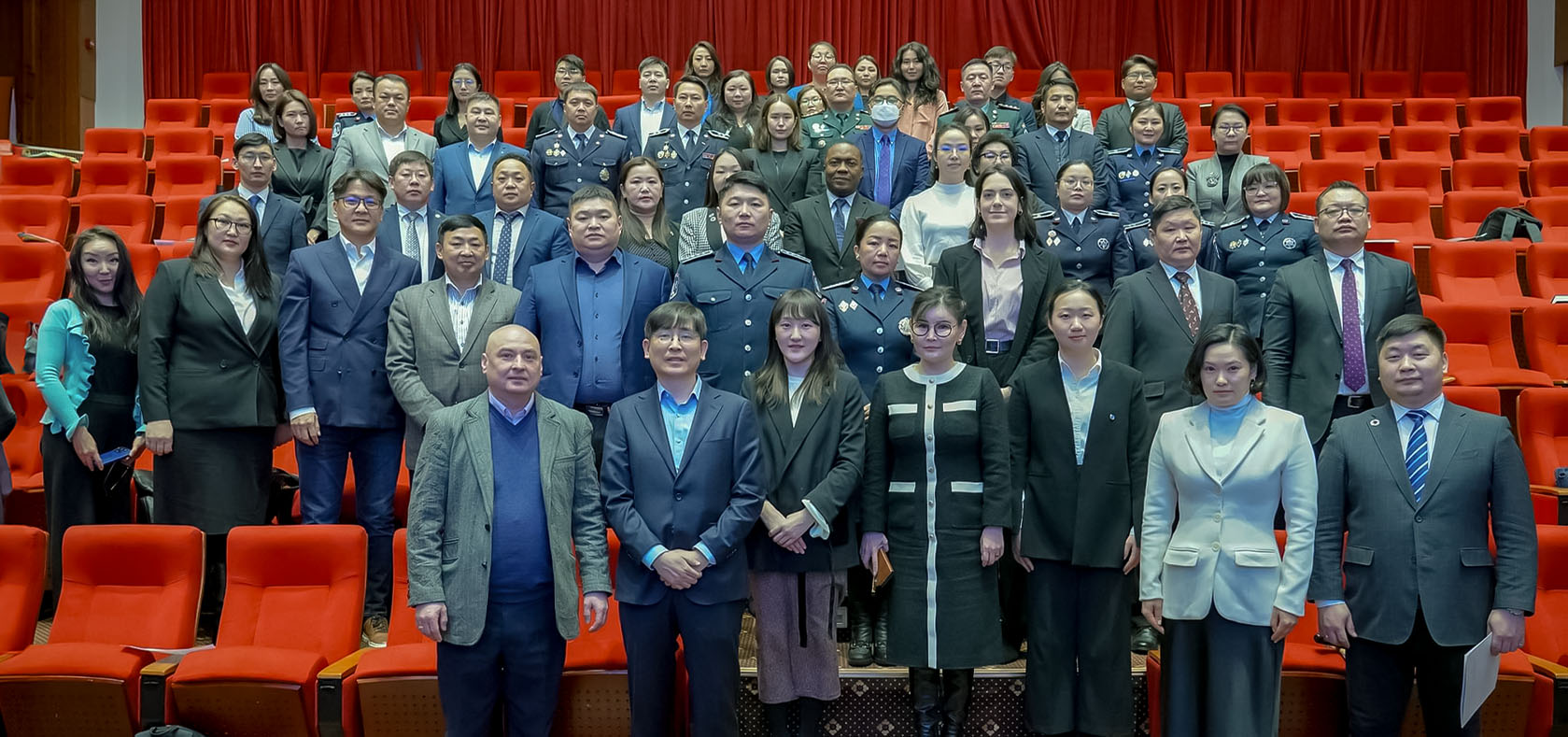English | 한국어
Ulaanbaatar, Mongolia — UN Women Centre of Excellence for Gender Equality (the Centre) and UNODC-KOSTAT Centre of Excellence launched a pilot study on the Statistical Framework for Measuring the Gender-related Killing of Women and Girls in Mongolia ─ the first of its kind in the Asia-Pacific region.
The study aims to identify and address any inconsistencies in relation to current national practices and definitions concerning the statistical characterization of femicide or the gender-related killing of women and girls. Additionally, it aims to support government agencies in establishing a more robust statistical data collection system that can be utilized for policymaking purposes.
Over 65 representatives from 21 government agencies and international organisations, including the National Police Agency, National Statistics Office, State General Prosecutor’s Office, the Ministry of Justice and Home Affairs, Coordination Council for Crime Prevention of Mongolia, UNFPA, IOM and Save the Children gathered to initiate and reaffirm their support to the pilot study on 5 March.

Acting State Secretary of the Ministry of Justice and Home Affairs of Mongolia welcomed the initiative, highlighting the timeliness of the pilot study. Photo: Courtesy of Coordination Council for Crime Prevention of Mongolia
Opening the event, Eunkoo Lee, Research and Data Specialist at the Centre stated, “This pilot study will lay the groundwork for Mongolia and the region to spearhead efforts in improving data collection on femicide, facilitating a more thorough analysis of its root causes and drivers and enabling the development of tailored prevention policies.”
Welcoming the initiative, Ms. Nyamgerel, Acting State Secretary of the Ministry of Justice and Home Affairs of Mongolia stated, “It is with great pleasure and deep pride that we spearhead this initiative alongside UN Women and UNODC. This underscores our unwavering commitment to combatting violence against women in our country and enhancing data aggregation to accurately gauge the scope of gender-related killings of women and girls.”
A statistical framework developed to address data gap on femicide
Femicide is the most brutal and extreme manifestation of violence against women and girls. Defined as an intentional killing with a gender-related motivation, femicide may be driven by stereotyped gender roles, discrimination towards women and girls, unequal power relations between women and men, or harmful social norms.
According to a report jointly published by UN Women and UNODC in 2023, approximately 48,800 women and girls lost their lives at the hands of intimate partners or other family members in 2022. On average, more than 133 women or girls are killed every day by someone in their own family.
However, these numbers do not represent the true magnitude of femicide as the true scale of it may be much higher. Estimating the precise number of femicides is challenging and data gaps persist. The absence of a common definition and internationally comparable data contribute to this challenge.
To address this data collection challenge, the UN Statistical Commission in its 53rd session in March 2022, endorsed the Statistical Framework for Measuring the Gender-related Killing of Women and Girls, jointly developed by UNODC and UN Women. The Framework prompts countries to collect information on the specific context in which gender-related killings of women and girls occur, to determine the gender motivation of the killing.

Law enforcement officials gathered to reaffirm their commitment and support for the pilot study. Photo: Courtesy of Coordination Council for Crime Prevention of Mongolia
Mongolia is the first country in the Asia-Pacific region to pilot the statistical framework. It currently collects data on gender-related crimes such as murder resulting from domestic violence, and homicide data disaggregated by sex. However, due to the lack of institutional coordination and a unified database for homicide cases, as in other countries, identifying femicide related data remains challenging.
During the workshop, the National Police Agency, State General Prosecutor’s Office, Judicial General Council, and National Statistical Office made presentations on their roles, responsibilities, and practices in collecting and recording the data related to violence against women and homicide.
The National Police Agency emphasized the need to enhance coordination among law enforcement agencies through database sharing and developing statistical capacities of the officials.
Through the pilot study, UN Women will focus on mapping the institutions responsible for data collection on homicide in Mongolia, while assessing data availability and comparability concerning the Statistical Framework that identifies the various criteria for classifying a killing of a woman or girl as femicide. Additionally, the Centre will scrutinize prevailing challenges, proposing viable solutions related to both the statistical framework and the collection of disaggregating variables.
The same pilot study will be implemented in Fiji, in parallel. The Centre will continue to support countries in the region to improve data collection and analysis of gender related killings of women and girls, contributing to forging evidence-based prevention policy.

